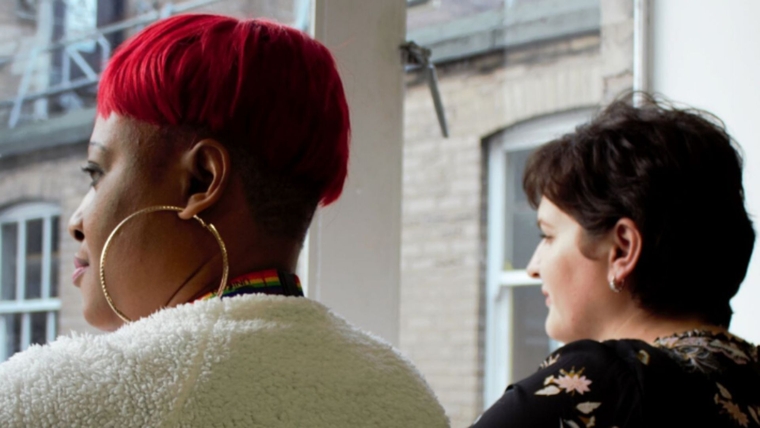Posted By: Amy Tubb
26th July 2021
4 minute read

During Refugee Week 2021, we asked Maternal Mental Health Alliance (MMHA) member Refugee Women Connect (RWC) about the biggest maternal mental health challenges facing refugee and asylum-seeking mothers.
MMHA: What are the unique needs of asylum-seeking and refugee women when it comes to maternal mental health?
RWC: Refugees and asylum-seeking women face practical and cultural barriers which prevent them from accessing support, including (but not limited to):
In addition, refugee and asylum-seeking women may face discrimination and structural racism within the healthcare system, such as:
Navigating statutory services and knowing who to ask for help can be really challenging. Counselling waitlists are long, the needs of these women aren’t understood and there is a lack of specialist services for women who have suffered female genital mutilation (FGM) or sexual violence.
There are inappropriate tools for this group of women for gauging mental health such as the Edinburgh Scale, used to screen for postnatal depression (PND). UK scales may not necessarily be culturally relevant and women may have a challenging time relating to or identifying that they are experiencing symptoms, or that these symptoms indicate PND.
Services may homogenise this group, even though asylum-seeking and refugee women are an incredibly diverse group of people with completely unique needs, experiences, languages, and cultures.
MMHA: What effects will the New Immigration Plan have on the maternal mental health of refugee and asylum-seeking women?
RWC: The full impact has yet to be seen, but it’s likely to penalise women who haven’t entered through “safe and legal” routes and reduce their ability to get refugee status. The Temporary Protection Status (TPS) will also increase stress and vulnerability, and make it difficult to plan for the future.
The no recourse to public funds attached to the TPS means already isolated mothers will have no safety net if they are unable to work or support themselves and their children. This also increases the risk of exploitation, domestic abuse and deprivation.
Women’s immigration status is a huge stress for them during pregnancy. If fewer women are able to claim asylum, many won’t have access to the National Asylum Support Service (NASS) and may be too afraid to come forward for maternity care.
There will be added pressure for women to disclose trauma and gender-based violence early in their asylum claims. Survivors of trauma need time and support to make these disclosures to avoid re-traumatising. The impact on pregnant women will be particularly acute.
MMHA: What reforms do you think are necessary to ensure equal access to mental health care during pregnancy for asylum-seeking and refugee women?
RWC: Refugee Women Connect recommends removing all NHS charges for maternity care, so women aren’t scared to come forward and we can ensure medical professionals and other staff understand what asylum is. We also recommend offering all pregnant asylum seekers and refugees Continuity of Care with specialist teams trained to respond to the particular challenges faced by displaced pregnant women.
A faster and fairer asylum decision will mean not being stuck in immigration limbo. The effective use of interpreters and health care professionals committing to providing longer appointments and explaining the maternity care process in greater depth will help.
MMHA: Why do you think organisations like Refugee Women Connect, and others, are important to provide refugee and asylum-seeking women with maternal mental health support?
RWC: Refugee Women Connect is committed to working in a trauma-informed, holistic way, so individual needs are understood before offering support. It’s imperative to understand the trauma of the UK asylum system to effectively support individuals and appreciate the impact it has on the mental health of refugees.
We can provide the support that considers the barriers that we know asylum-seeking and refugee women face and try to break those barriers down so that women have the agency to advocate for themselves. This is essential for improving mental health.
We recognise the diversity within asylum-seeking and refugee communities and understand there are many different experiences, hopes, dreams and personalities that shouldn’t be conflated into a homogenous voice.
MMHA: Women who are seeking sanctuary in the UK are much more than just their immigration status. How can organisations work with women to support them as a whole person?
RWC: It’s important to view women as a whole person not just as asylum seekers and refugees. If you don’t understand where someone has come from, or how they currently feel, you won’t be able to help them reach a safer, more relaxed sense of self and belonging.
It’s also important to understand the “hierarchy of needs”, someone can be offered a free college course, but if their housing situation is unsafe, or if their basic needs aren’t being met, it’s unlikely they’ll be able to focus on the course.
We’ve repeatedly heard women mention their counselling sessions were discontinued because they “talked about the Home Office too much”. If you live in fear of being returned to a dangerous situation, how can you be expected not to talk about this aspect of your life?
It is the job of the health service, not the person, to adapt in a way that is helpful.
Visit Refugee Women Connect’s website to find out more about their maternal mental health work.